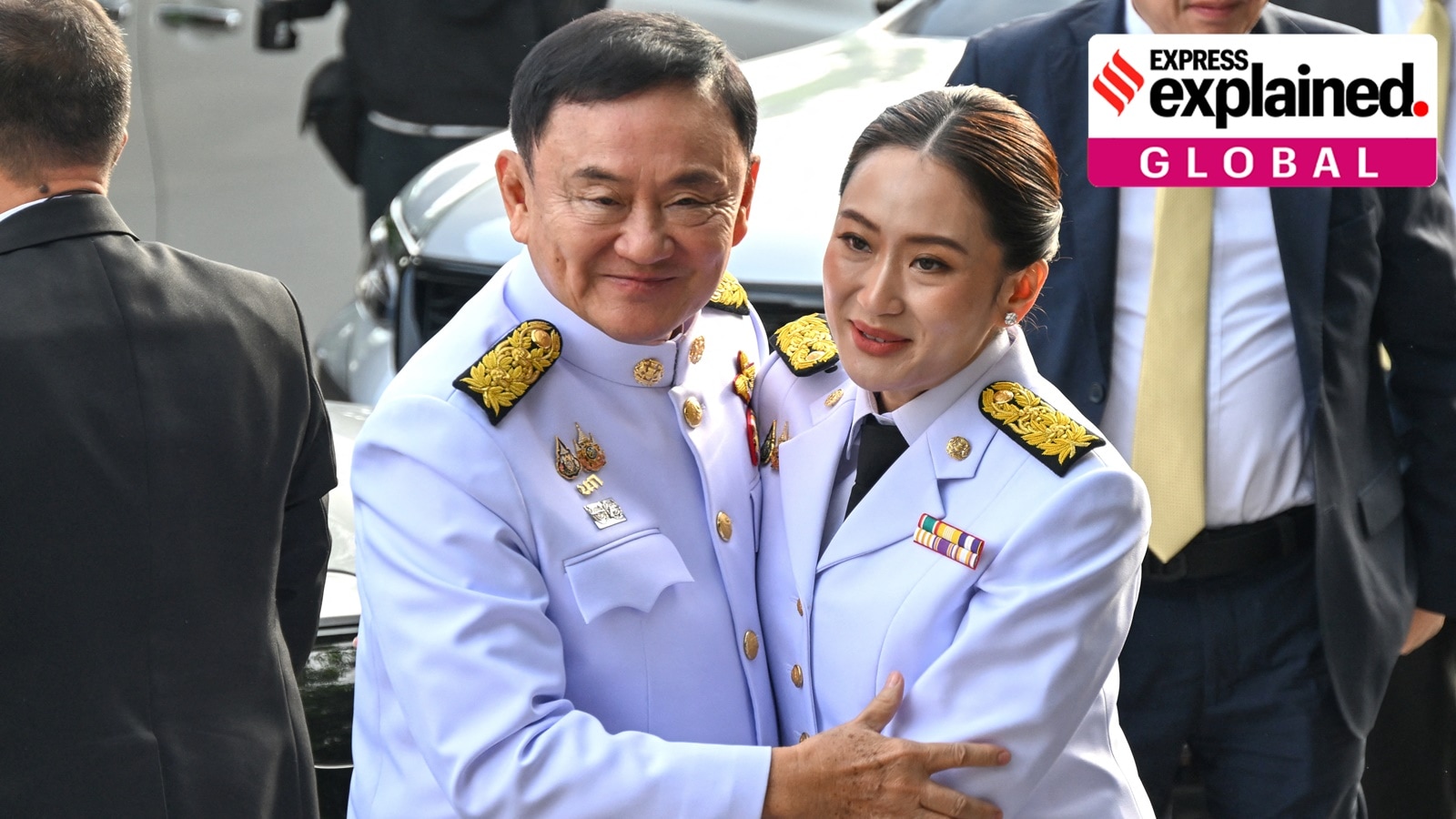Prime Minister Narendra Modi congratulated Thailand’s new Prime Minister Paetongtarn Shinawatra on Sunday (August 18), two days after the country’s Parliament elected her as the new PM. “Look forward to working with you to further strengthen the bilateral ties between India and Thailand that are based on the strong foundations of civilisational, cultural and people to people connect,” he said in a post on X.
Her election comes more than a year after her centre-right Pheu Thai party came second in the general election. Although the progressive Move Forward Party (MFP) had won the largest number of seats, a political arrangement brokered by Paetongtarn’s father and former prime minister Thaksin Shinawatra (2001-06) resulted in a coalition led by Pheu Thai coming to power.

Pheu Thai leader Srettha Thavisin became prime minister in August 2023. However, less than a year later, he was ousted from the position by the order of a constitutional court on August 14. The court said Srettha had been dishonest and had “breached ethical standards” by appointing an individual with a criminal conviction to his cabinet.
Paetongtarn is the third member of the Shinawatra family to become prime minister after Thaksin and his sister Yingluck, who occupied the post from 2011-14. Both Thaksin and Yingluck were removed from power in military coups.
Many in Thailand had looked to the MFP with hope of political reform, given the decades-old dominance of the military and the Thai royalty over the country’s politics.
Who is Petongtarn Shinawatra?
Petongtarn, the youngest-ever PM of the nation of 70 million, joined politics only three years ago. Having studied hotel management in the United Kingdom, she had been managing Thaksin’s Rende hotel group.
According to a profile published by the BBC, Petongtarn “describes herself as a compassionate capitalist, a social liberal who fully supports Thailand’s new equal marriage law”. However, her personality is mainly seen as being indistinct from the legacy and reputation of the powerful Shinawatra clan.
Story continues below this ad
Thaksin, who is now 75, was in the police before joining politics. He also owned several businesses in key sectors and expressed disdain for the country’s entrenched elites, such as businessmen, bureaucrats, and other power players linked to the influential monarchy and the military. The two institutions are seen as helping sustain each other in Thailand’s constitutional monarchy.
Thaksin’s welfare policies cemented his popularity among poor and rural Thais. But in 2006, protests erupted following allegations that the Shinawatra family had failed to pay taxes on their businesses, leading to a military-orchestrated ouster.
Yingluck was accused by opposition leaders of running a proxy government for Thaksin. She too was ousted after a judicial order against her in 2014. Thaksin has since backed several parties, and has remained a powerful player in Thai politics.
What are the implications of the Shinawatras’ return to power?
Thaksin is seen as a once-popular leader who has joined hands with the conservative forces he was earlier positioned against. This ‘deal’ reportedly allowed the former PM to return to Thailand in 2023, after having lived in exile for 15 years. During this period, he was sentenced to eight years in prison over an abuse-of-power case during his tenure, but the sentence was reduced to one year by King Maha Vajiralongkorn last September.
Story continues below this ad
On August 17, Thaksin received a royal pardon reducing his parole to two weeks, Reuters reported.
The recent events have raised concerns over the shrinking of spaces for strong political voices representing the will of the Thai people. In the 2023 general election, the MFP had emerged as the biggest party with 141 seats in the 500-seat lower house. Its major agenda was loosening the lèse majesté laws that punish any criticism of the Thai monarchy, including liking social media posts.
The party, led by 42-year-old Pita Limjaroenrat, enjoyed considerable support among the youth. It first appeared in politics in 2018 under the name Future Forward Party, but was dissolved by a constitutional court in 2020 over a violation of electoral rules. Viewing the ruling as politically motivated, tens of thousands took to the streets.
That sequence of events has now somewhat repeated itself. Earlier this month, a constitutional court ordered MFP to be dissolved over its “unlawful” pledge to reform lèse majesté laws. Its executive committee, which includes Limjaroenrat, was also banned from politics for 10 years. The MFP has been re-constituted as the People’s Party.
Story continues below this ad
Limjaroenrat told The Guardian in an interview that Thailand was trapped in a “double lock democracy”, where the legal system and military coups were repeatedly being used to undermine election results.
What happens next?
Analysts believe Petongtarn Shinawatra will likely be in her father’s shadow, given her inexperience and the mammoth task of heading the government. Ensuring her political survival will be Thaksin’s major challenge given Thailand’s turbulent political history, which has seen 19 coups since the country became a constitutional monarchy in 1932.
Another concern will be the economy. According to a Nikkei Asia report, “The economy has grown 1% to 4% per year since the 2014 coup, compared with around 5% for Southeast Asia as a whole. Cheap labour and infrastructure investments once drove rapid growth, but the country has struggled to further develop its industrial base even as Vietnam and other neighbours catch up.”








































